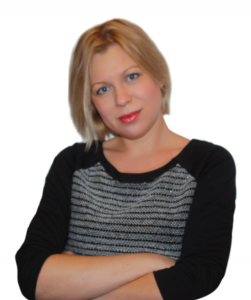© 2017 Natalia KOTOVA
2017 – № 2 (14)
 Key words: Ayurveda, traditional medicine, global Ayurveda, modern Ayurveda, commercialization, modernization, Indian revivalists, ayurvedic patent and licensed medicine, Chavanprash, ayurpathetic drugs, pharmaceutical episteme, methods of evidence-based medicine
Key words: Ayurveda, traditional medicine, global Ayurveda, modern Ayurveda, commercialization, modernization, Indian revivalists, ayurvedic patent and licensed medicine, Chavanprash, ayurpathetic drugs, pharmaceutical episteme, methods of evidence-based medicine
Abstract: The article analyzes the emergence of the phenomenon of “modern” Ayurveda as a result of the efforts of Indian revivalists in the 20th century, the emergence of an institutionalized and professional medical system that integrated certain aspects of biomedicine, in particular in the field of diagnostics and pharmaceutical products. The author shows that, having gone beyond India, Ayurveda has become a popular commercial brand. This type of “global” Ayurveda, returning back to India, led to its commercialization. Private Ayurvedic segment is not controlled by the Ministry of AYUSH, which leads to the emergence of a variety of institutions, both medical and tourist, where some modifications are possible to the Indian-built TMS (traditional medical system) based on Ayurveda.
References
Banerjee, M. (2002) Public Policy and Ayurveda: Modernising a Great Tradition”, Economic & Political Weekly, Vol 37 (12), p. 1136-1146.
Bkhushan Patvardkhan (2015) Ob”edinenie Aiurvedy i nauchnykh podkhodov v dokazatel’noi meditsine [The union of Ayurveda and scientific approaches in evidence-based medicine]. V.G. Zilova, A.K. Zhuravleva, K.V. Dilipkumara (eds.),Materialy II Vserossiiskogo kongressa po Aiurvede [Materials of the II All-Russian Congress on Ayurveda] Moscow, April 9–10 2015. M.:IVMRUDN, ARIAВ.
Bode, M. (2006) Taking Traditional Knowledge to the Market: The Commoditization of Indian Medicine, Anthropology & Medicine, Vol. 13, No. 3, December, p. 225–236.
Bode, M. (2012) Ayurveda in the Twenty-First Century: Logic, Practice and Ethics(https://www.researchgate.net/publication/261365043) (15.12.2017).
Bode, M. (2015) Assembling cyavanaprāsh, Ayurveda’s best-selling medicine, Anthropology & Medicine, 22 (1), p. 23–33.
Bromlei, Iu.V., Voronov, A.A. (1976) Narodnaia meditsina kak predmet etnograficheskikh issledovanii [Traditional medicine as a subject of ethnographic research], Sovetskaia etnografiia[Soviet ethnography], Vol. 5, p. 3–18.
Kharitonova, V.I. (2012) Ot narodno-meditsinskikh traditsii k integrativnoi meditsine [From national-medical traditions to integrative medicine], Rossiiskii Sever i severiane: sreda-ekologiia-zdorov’e: Nauchnyi vestnik Iamalo-Nenetskogo avtonomnogo okruga [Russian North and Northerners: environment-ecology-health: Scientific Bulletin of the Yamal-Nenets Autonomous District], No. 1 (74), p. 40-45.
Kharitonova, V.I. (2015) Meditsinskaia antropologiia: rossiiskie realii: predislovie [Medical Anthropology: Russian Realities: Preface]. V.I. Kharitonova (ed.), Meditsinskaia antropologiia, problemy, metody, issledovatel’skoe pole [Medical Anthropology, Problems, Methods, Research Field], Moscow: Publicity, p. 5-8.
Kharitonova, V.I. (2016) Meditsinskaia antropologiia: institutsionalizatsiia nauchnogo napravleniia [Medical Anthropology: Institutionalization of the Scientific Direction]. Е.B. Barinova (ed.) Predmet i problemy etnologii i antropologii: Lektsii dlia aspirantov [The Subject and Problems of Ethnology and Anthropology: Lectures for Post-Graduate Students], Moscow: IEA RAS, p. 216-259.
Meulenbeld, G. J. (1999–2002) A History of Indian Medical Literature, Groningen: Egbert Forsten.
Rai, N.P., Tiwari, S.K., Upadya, S.D., Chaturvedi, G.N. (1981) The Origin and Examination of Pulse Examination in Medieval India, Indian Journal of History of Science, 16 (1), May, p. 77–88.
Smith, F. M. et Wujastyk, D. (eds.) (2008) Introduction article, Modern and Global Ayurveda: Pluralism and Paradigms, NY: State University of New York Press, p. 363.
Warrier, M (2011) Modern Ayurveda in Transnational Context, Religion Compass 5/3, p. 80–93.
Zysk, K. G. (1999) Mythology and the Brāhmaṇization of Indian medicine: Transforming Heterodoxy into Orthodoxy, Categorisation and Interpretation: Indological and Comparative Studies from an International Indological Meeting at the Department of Comparative Philology, Folke J. (ed.), Gothenburg: University of Gothenburg, p.125–145.
This article is available in full version in Russian